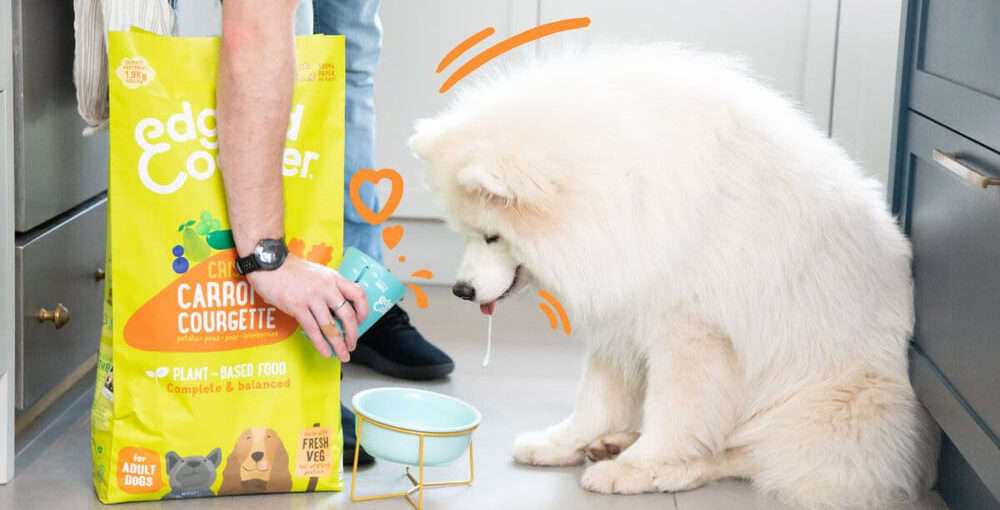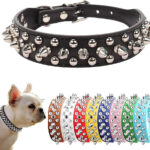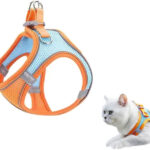As pet owners, we all want the best for our furry companions, especially when it comes to their diet. With so many pet food options available, it can be overwhelming to choose the right one. One increasingly popular choice is grain-free dog food. But is it the safest option for your pet? In this article, we’ll delve into the benefits, potential risks, and things to consider when choosing grain-free food for your dog.
What is Grain-Free Dog Food?
This type of food is made without common grains such as wheat, corn, and rice. Instead, it often contains alternative carbohydrate sources like sweet potatoes, peas, lentils, or potatoes. It is designed for dogs that may have grain sensitivities or allergies, or for pet owners who believe it offers a more natural, biologically appropriate diet.
While grain-free food can be beneficial for some pets, it’s important to understand that not all dogs need this type of diet, and it may not be necessary for every pet.
The Benefits of Grain-Free Dog Food
Discover the many advantages of choosing a grain-free diet for your dog. From improved digestion to enhanced coat and skin health, this type of grain-free dog food can offer a natural, nutritious option for your pet’s well-being.
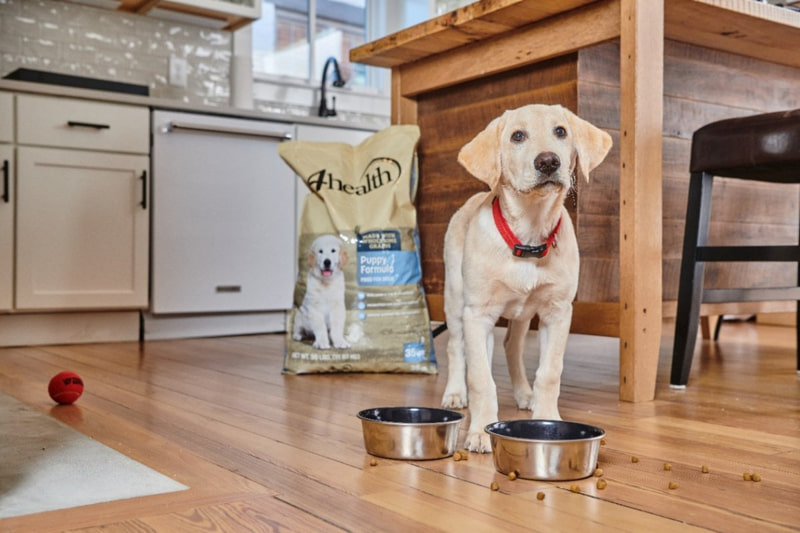
Ideal for Dogs with Grain Sensitivities or Allergies
One of the main reasons pet owners opt for this type of food is to help dogs with grain sensitivities or allergies. Many dogs experience gastrointestinal upset, itchy skin, or ear infections as a result of consuming grains like wheat or corn. By eliminating grains from their diet, owners may see an improvement in their dog’s overall health, including fewer allergic reactions and better digestion.
Better Digestive Health
Some dogs, especially those with sensitive stomachs, may have trouble digesting grains. This food uses alternative sources of carbohydrates that are often easier for dogs to digest. Ingredients such as sweet potatoes and peas provide fiber and nutrients that promote healthy digestion, making it a good option for dogs with digestive issues or food intolerances.
Improved Coat and Skin Health
The high-quality proteins and fats found in this diet can improve your pet’s coat and skin health. Many of these foods include animal-based proteins like chicken, beef, or fish, which are rich in essential fatty acids. These nutrients help support healthy skin, a shiny coat, and reduce shedding. For dogs with dry, flaky skin or allergies, this diet can lead to noticeable improvements.
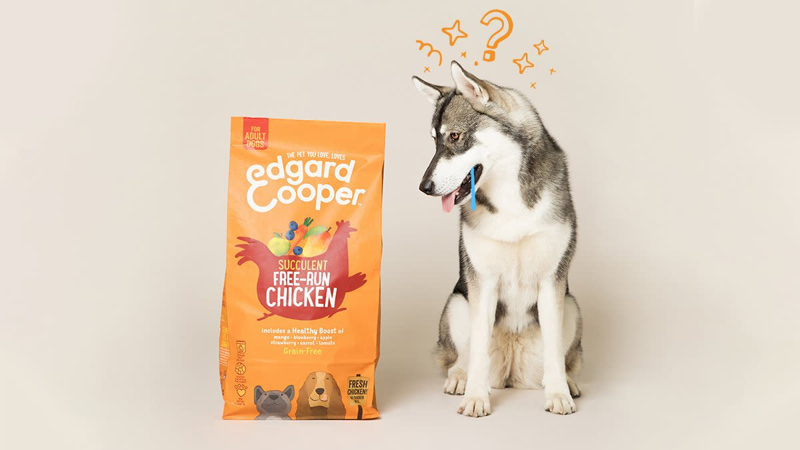
Enhanced Energy Levels
Diets that focus on high protein and healthy fats tend to provide dogs with sustained energy throughout the day. These nutrients support muscle growth, recovery, and overall vitality, making it a good choice for active dogs who need more energy.
Helps Maintain a Healthy Weight
Some of these foods contain fewer carbohydrates, which can help pets maintain a healthy weight. Reducing grains may result in a more nutrient-dense diet, helping dogs who need to lose weight or maintain an optimal body condition.
Potential Risks of Grain-Free Dog Food
While there are several benefits to feeding your dog this type of food, it’s important to be aware of the potential risks associated with this diet.
Risk of Heart Disease (Dilated Cardiomyopathy)
One concern that has surfaced in recent years is the possible link between grain-free diets and a type of heart disease called dilated cardiomyopathy (DCM). Some studies have suggested that certain foods, particularly those that contain a high amount of peas, lentils, and other legumes, may be associated with an increased risk of DCM in dogs, especially in breeds that are genetically predisposed to this condition. While research is still ongoing, it’s important to consult your veterinarian before making the switch, especially if your dog is of a breed that is at higher risk for heart issues.
Nutritional Imbalance
Not all grain-free foods are nutritionally balanced. Some brands may compensate for the lack of grains by adding too much protein or fat, which could lead to an imbalance in your dog’s diet. It’s essential to choose a high-quality food that meets all of your dog’s nutritional needs, including appropriate levels of vitamins, minerals, and fiber.
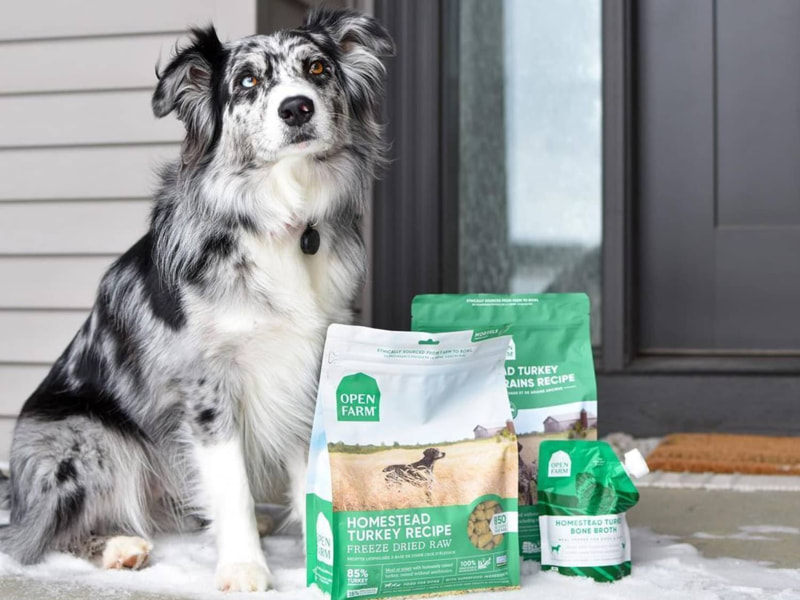
Higher Cost
Grain-free options can be more expensive than traditional foods that contain grains. The cost of ingredients like meat, fish, and legumes can increase the price of these diets, making them a less affordable option for some pet owners. If budget is a concern, it’s important to weigh the benefits against its price and consider whether it’s the best option for your dog.
Is Grain-Free Dog Food Right for Your Pet?
This type of food can be a great option for dogs with specific health concerns, such as grain allergies, sensitivities, or digestive issues. However, not all dogs require a grain-free diet. Many dogs tolerate grains perfectly fine, and removing them from the diet may not offer any additional benefits. When choosing food for your dog, consider the following factors:
- Health Conditions: If your dog has a known allergy or sensitivity to grains, a grain-free diet may help alleviate symptoms. However, it’s important to consult your veterinarian to confirm whether this diet is the best choice for your dog’s health.
- Breed and Size: Some breeds are more prone to certain health issues, such as heart disease, which may be exacerbated by a grain-free diet. Speak with your vet about your dog’s specific needs, particularly if they are a breed at risk for DCM or other heart conditions.
- Overall Diet: Look for a balanced and nutritionally complete diet, whether it contains grains or not. High-quality protein sources, healthy fats, and appropriate amounts of fiber are essential for your dog’s overall well-being.
Grain-free dog food can be a safe and beneficial option for certain dogs, especially those with grain sensitivities, allergies, or digestive issues. It offers several benefits, including improved digestion, healthier skin and coat, and more energy. However, it may not be necessary for every dog, and there are some risks associated with this diet, particularly in relation to heart disease and nutritional imbalances. As always, it’s important to consult your veterinarian before making significant changes to your dog’s diet to ensure that you’re making the best choice for their health and well-being.
Refer to some joint military product lines:
“Grain-Free Dog Food: Natural Balance Limited Ingredient Chicken & Sweet Potato Recipe – Adult Dry Dog Food (24 lb Pack)”
Blue Buffalo Basics Salmon Recipe – Limited Ingredient Diet for Skin & Stomach Care
WholeHearted Beef & Pea Formula for All Life Stages – Natural Dry Grain-Free Dog Food

